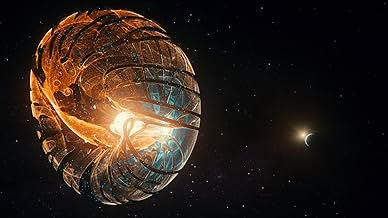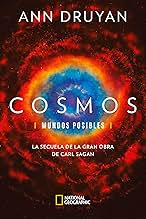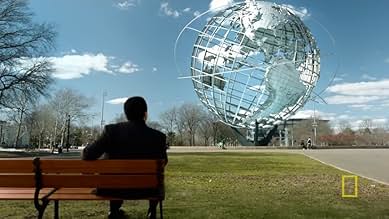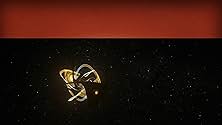IMDb रेटिंग
9.0/10
8.3 हज़ार
आपकी रेटिंग
नील डेग्रसे टायसन विज्ञान के अधिक रहस्योद्घाटन को एक भव्य परिवहन अनुभव में अनुवाद करने के लिए मेजबान के रूप में लौटते हैं, दर्शकों को अन्वेषण की आध्यात्मिक यात्राओं की एक श्रृंखला पर ले जाते... सभी पढ़ेंनील डेग्रसे टायसन विज्ञान के अधिक रहस्योद्घाटन को एक भव्य परिवहन अनुभव में अनुवाद करने के लिए मेजबान के रूप में लौटते हैं, दर्शकों को अन्वेषण की आध्यात्मिक यात्राओं की एक श्रृंखला पर ले जाते हैं.नील डेग्रसे टायसन विज्ञान के अधिक रहस्योद्घाटन को एक भव्य परिवहन अनुभव में अनुवाद करने के लिए मेजबान के रूप में लौटते हैं, दर्शकों को अन्वेषण की आध्यात्मिक यात्राओं की एक श्रृंखला पर ले जाते हैं.
- 2 प्राइमटाइम एमी जीते
- 2 जीत और कुल 2 नामांकन
एपिसोड ब्राउज़ करें
फ़ीचर्ड समीक्षाएं
Best scientific documentary that has been made ever.
Neil is like always perfect.
as a scientific show that simulations must be exact and adjust to reality; visuals, animations, sounds... are really wonderful.
you can not show the complicated theories like quantum to people with different levels of science, better than this.
thanks to lovely Ann Druyan
The Cosmos is back with another amazing story telling that indulges a person into magnificence. This shows takes us into journey to far distant Galaxies to the deep lying microbes billions of years old. This show ignites the explorer inside you.
This is must watch for all the Stargazers and Astronomy lovers.
This is must watch for all the Stargazers and Astronomy lovers.
Neil deGrasse Tyson is a marvelous astrophysicist who really loves his field and you can see this in the way he narrates the series. Cosmos is not only a journey, it also shows how much science has improved since the original series, all the new evidence, technology, and ideas, they encourage the next generation to pursue knowledge and discover something amazing. The visuals are stunning, the animation is unique, and most importantly it is very informative.
Everyone should give this a watch ...
The graphics are simply stunning. And Tyson's humbleness in presentation is simply astonishing considering how big he got after the first show. I also love that they kept the 2D animation style when talking about past scientists and people with the 2nd season and Tyson. This should basically be mandatory viewing for all students in high school without question.
Before this season began, the subtitle "possible worlds" gave me the impression that the 13 planned episodes would, one by one, show us a series of scientifically justifiable but altogether imaginary worlds (or more specifically: planets). This series is however, something completely different from that.
After having watched the first six episodes and reading some earlier reviews on the series, I get where the negative reactions stem from: wrongful expectations, not unlike my own.
What this series is doing, won't necessarily become apparant in either the first or the second episode. This may lead to the series coming off as somewhat childlike, but this has a reason, which is explained in the sixth episode (and is in hindsight deductible from the series predecessors). The goal of this series is to educate the broadest possible public, on what scientists today know about what possible worlds are ou there, outside of our own home planet.
It does so by first building a very solid foundation on how the scientific community and with it human society, evolved from our cave dwelling ancestors up until now. It explains what ideas, insights, experiences and so on have been key to getting us where we are now. With the season being halfway through at the moment of writing, it seems to me that my original expectations won't be completely off, but rather they are limited to the last few episodes.
So if you are expecting ground breaking new discoveries tickeling the imagination of a highly educated viewers public, you'll be in for a disappointment. This has however, never been the premise of these series. The goal was, and still is: bridging the gap between the scientific community and the greater general public.
And this is what the series does impressively well.
What this series is doing, won't necessarily become apparant in either the first or the second episode. This may lead to the series coming off as somewhat childlike, but this has a reason, which is explained in the sixth episode (and is in hindsight deductible from the series predecessors). The goal of this series is to educate the broadest possible public, on what scientists today know about what possible worlds are ou there, outside of our own home planet.
It does so by first building a very solid foundation on how the scientific community and with it human society, evolved from our cave dwelling ancestors up until now. It explains what ideas, insights, experiences and so on have been key to getting us where we are now. With the season being halfway through at the moment of writing, it seems to me that my original expectations won't be completely off, but rather they are limited to the last few episodes.
So if you are expecting ground breaking new discoveries tickeling the imagination of a highly educated viewers public, you'll be in for a disappointment. This has however, never been the premise of these series. The goal was, and still is: bridging the gap between the scientific community and the greater general public.
And this is what the series does impressively well.
क्या आपको पता है
- ट्रिवियाThe limited series is a follow-up to the 2014 television series Cosmos: A Spacetime Odyssey (2014), which followed the original Cosmos (1980) series presented by Carl Sagan on PBS in 1980.
टॉप पसंद
रेटिंग देने के लिए साइन-इन करें और वैयक्तिकृत सुझावों के लिए वॉचलिस्ट करें
- How many seasons does Cosmos: Possible Worlds have?Alexa द्वारा संचालित
विवरण
- चलने की अवधि
- 45 मि
- रंग
- ध्वनि मिश्रण
- पक्ष अनुपात
- 16:9 HD
इस पेज में योगदान दें
किसी बदलाव का सुझाव दें या अनुपलब्ध कॉन्टेंट जोड़ें





































